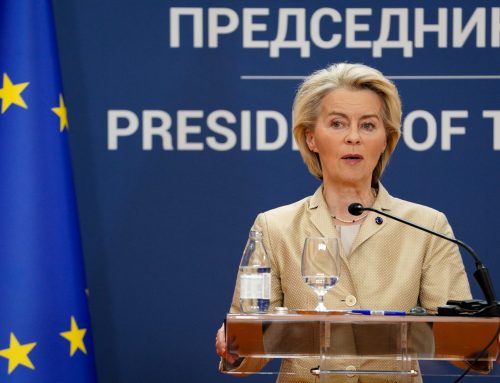EU Delegation requests from Vecernje novosti daily to publish a correction of an erroneous article alleging corruption
In relation to the article published on your front page on 4 February 2016 under the title “EU Delegation Under Suspicion for Corruption?”, which is then elaborated on page 4 under the title “Eurocorruption in Belgrade?” you are hereby requested, pursuant to the Articles 83, 87, 96 and 97 of the Law on Public Information and Media (Official gazette of the Republic of Serbia No. 83/2014) to publish in its entirety this correction which provides, accurate, correct and verifiable information related to the unfounded, unsubstantiated, erroneous and biased allegations that “Vecernje novosti” has printed.
We refer to your article titled “EU Delegation Under Suspicion for Corruption (4 February 2016) published on the cover page and further on page 4. We would like to provide a number of corrections, and request that you publish this correction with equal placement (front page and page 4) as the articles in question.
The same information was sent to the publisher of the original article which appeared in “New Europe” on 18 January 2016, with the title “EU Commission Games in Serbia” which you have extensively reprinted without any attempts or research to check the correctness of the information there published.
The project you refer to is the “Promotion and Protection of Property Rights of Internally Displaced Persons Refugees and Returnees upon Readmission Agreements.”
This project has been tendered as a services contract by the Serbian authorities, specifically by the Department for Contracting and Financing of EU funded programmes (CFCU) at the Serbian Ministry of Finance. Therefore, the CFCU as Contracting Authority for the project evaluates the offers and bears the responsibility for implementation, including procurement. This has been one of the first projects under the Instrument for Pre-Accession (IPA) which Serbia has tendered out itself via the CFCU and therefore under its own leadership and responsibility.
The Delegation of the EU makes an ex ante control of the legality and regularity of the evaluation procedures to check that they are in line with the EU’s financial regulations. The ex-ante control is a legal assessment by the Delegation of the procurement steps (contract notice, tender dossier, panel of evaluators, evaluation report, contract) which an EU tender involves. This control mechanism on EU tenders by the Delegation has been accepted by Serbia in the programme agreements which Serbia has signed with the EU.
The ex-ante control by the Delegation detected deficiencies in the evaluation procedures for this project and suggested a new evaluation in accordance with applicable procurement rules. The CFCU subsequently published a cancellation notice, a public document accessible on-line (webgate.ec.europa.eu), which invited the same tenderers to tender again. Hence, it is incorrect and misleading to state, as you do, that this happened because “the wrong company” had been selected. The CFCU, like the European Commission, are bound to assess carefully the correctness of tender procedures for the proper use of EU taxpayers’ funds; this may involve the cancellation of tenders where proper application of procedures is at stake.
Contrary to claims in your article, the Delegation has not been involved in evaluating former or new offers but as observer of the proceedings. The Delegation has no decision-making role in tender evaluations managed by the CFCU. As recalled above, the CFCU leads this tender procedure under the ex-ante assessment of the Delegation. The new evaluation committee which will evaluate the offers will again be led by the Serbian authorities.
Similarly, and contrary to your comments, the Delegation has no evidence at its disposal indicating that one of the tenderers should have been excluded from this tender evaluation on account of conflict of interest. It is not true that a company bidding for this project is managed by a former employee of the Delegation, as claimed in your article.
Please note that the Delegation has respected procedural due diligence in appraising the correctness and fairness of the evaluation; this includes suggesting to reject an evaluation and reconvene the evaluation committee.
For the sake of transparency and accuracy the Delegation would expect that you publish this correction. We are at your disposal for any further information you might require to rectify this attempt to tarnish the reputation of the EU Delegation in Serbia and its work in supporting Serbia with the funds of the European Union tax payer.
The fact that an article is being reprinted, or extensively used as a “source” for another article, especially when this is done by another publication, does not relieve the re-printer and the journalists to verify the correctness of information used as their source.




